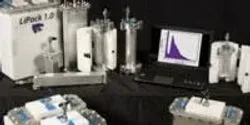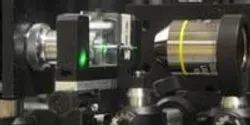News

Scientists and students in the Research Triangle area of North Carolina will have new opportunities to attend presentations by leading analytical chemistry authorities, thanks to an endowment established by Thermo Fisher Scientific in the College of Sciences at North Carolina State University. The endowment will help support the planned Distinguished Analytical Chemistry Seminar Series in the Department of Chemistry.

Criminals are smuggling an estimated $30 billion in U.S. currency into Mexico each year from the United States, but help could be on the way for border guards, researchers reported recently. The answer to the problem: a portable device that identifies specific vapors given off by U.S. paper money.

Kansas State University engineers have developed a lithium-based neutron detector that is being recognized as one of the year's Top 100 newly developed technologies.

A new technique that transforms stinky, air-polluting landfill gas could produce the sweet smell of success as it leads to development of a fuel cell generating clean electricity for homes, offices and hospitals, researchers say. The advance would convert methane gas into hydrogen, an efficient, clean form of energy.

Four University of California, Davis, researchers have been given $50,000 each in the inaugural year of a competitive grant program aimed at facilitating the conversion of technology generated from university research into commercial applications.















